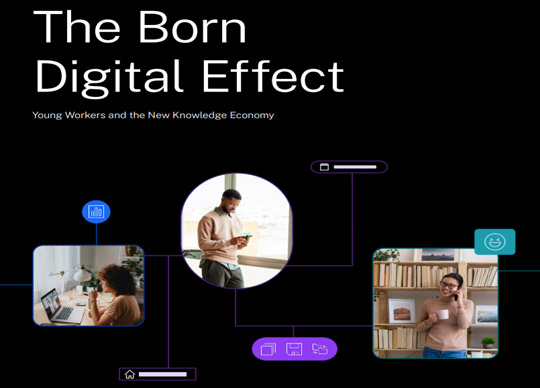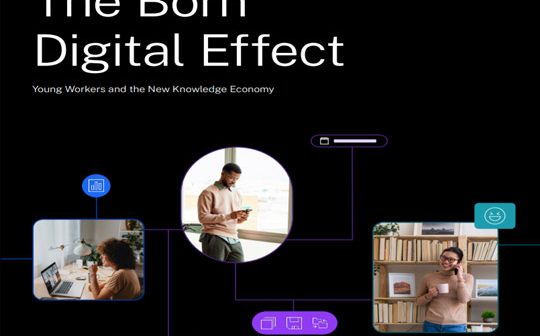
Today’s young employees are the engines of the knowledge economy and tomorrow’s business leaders. And according to The Born Digital Effect, the latest research from Citrix Systems, Inc. (NASDAQ:CTXS), they’re primed to deliver an extra USD $1.9 trillion (AUD $2.45 trillion) in corporate profits. But they’ll need some help to pull it off.
Made up of Millennials (born 1981 to 1996) and Generation Z (born after 1997) workers, the ‘Born Digital’ are the first generation to grow up in an entirely digital world, and now account for most of the global workforce.
“These young employees are different from previous generations in that they have only ever known a tech-driven world of work,” said Donna Kimmel, Executive Vice President of Chief People Officer, Citrix. “To shore up their future business success, companies must understand their values, career aspirations and working styles and invest in their development.”
To help them do this, Citrix, together with Coleman Parks Research and Oxford Analytica, conducted The Born Digital Effect, a study that combined global opinion research from 1,000 business leaders and 2,000 knowledge workers in 10 countries to understand what the Born Digital want from work; with economic modelling to quantify the impact they can have on business and the larger economy.
Citrix Australia also surveyed more than 1,500 Australian knowledge workers who worked from home at some point since March 2020, to explore the impacts of the pandemic on the attitudes of new office workers.
More than half (51 per cent) of younger Australians aged 18 to 24 years old (the Born Digital) entered the workforce for the first time and worked remotely during the pandemic, with two in three (66 per cent) wanting flexible working arrangements to manage workloads and wellbeing.
But while the majority (54 per cent) claimed to experience a better work-life balance after primarily working remotely, this cohort was also the most likely to be experiencing symptoms of burnout (40 per cent) as a result of working from home, compared to all other generations in our workforce.
The Australian study also revealed that 32 per cent of Born Digital employees don’t feel empowered to ask their employer for flexible working arrangements, with an even higher proportion (49 per cent) expecting to eventually go back to ‘old ways of working’.
This is despite Australian Born Digital employees feeling efficient (31 per cent) when working remotely, and more than half (51 per cent) claiming that they would be more likely to return to work after parental leave if given the opportunity to work from anywhere.
The Australian study reflects findings from The Born Digital Effect global study, reiterating the importance for organisations to adapt to the shift in employee expectations about how work gets done, in order to attract and retain talent, unlock workforce productivity and benefit from corporate and economic gains.
“Successfully attracting and retaining the Born Digital will require organisations to invest in the work model and tools to create the flexible, efficient and engaged work environment that this next generation of leaders craves and thrives in,” said Tim Minahan, Executive Vice President of Business Strategy, Citrix. “And there is clear commercial benefit to doing so.”






